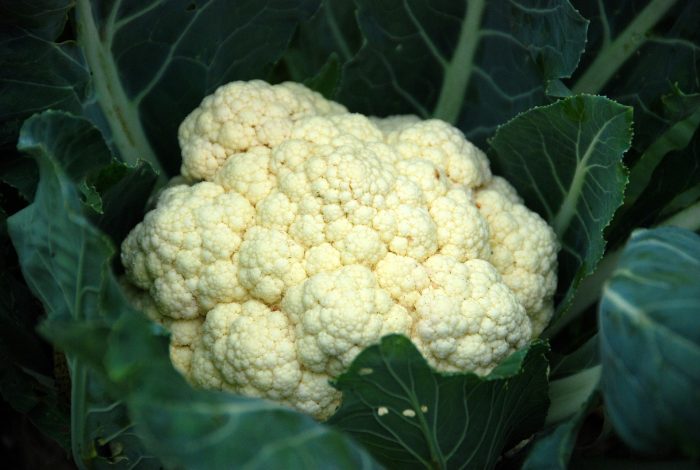Medical Compass: Lower your prostate cancer risk this ‘Movember’
Build a risk-reduction arsenal with healthy food options
By David Dunaief, M.D.

Happy “Movember!” In 2003, The Movember Foundation was founded in Australia to raise awareness and research money for men’s health issues (1). Its mission is to reduce the number of men dying prematurely 25 percent by 2030. From its modest beginnings with 30 participants, The Movember Foundation has expanded to 20 countries, more than six million participants, and funded over 1250 men’s health projects focused on mental health and suicide prevention, prostate cancer, and testicular canc
Movember Foundation’s prostate cancer initiatives focus on early detection, treatment options, and quality of life considerations for different treatments. Here, I’d like to add prevention options to the conversation.
The best way to avoid prostate cancer is with some simple lifestyle modifications. There are a host of things that may increase your risk and others that may decrease your likelihood of prostate cancer, regardless of family history.
What may increase the risk of prostate cancer? Contributing factors include obesity, animal fat and supplements, such as vitamin E and selenium. Equally as important, factors that may reduce risk include vegetables, especially cruciferous vegetables, and tomato sauce or cooked tomatoes.
Vitamin E and selenium – not the right choice
In the SELECT trial, a randomized clinical trial (RCT), a dose of 400 mg of vitamin E actually increased the risk of prostate cancer by 17 percent (2). Though significant, this is not a tremendous clinical effect. It does show that vitamin E should not be used for prevention of prostate cancer. Interestingly, in this study, selenium may have helped to reduce the mortality risk in the selenium plus vitamin E arm, but selenium trended toward a slight increased risk when taken alone. I would not recommend that men take selenium or vitamin E for prevention.
Manage your weight
Obesity showed conflicting results, prompting the study authors to analyze the results further. Ac-cording to a review of the literature, obesity may slightly decrease the risk of nonaggressive prostate cancer, however increase risk of aggressive disease (3). The authors attribute the lower incidence of nonaggressive prostate cancer to the possibility that it is more difficult to detect the disease in obese men, since larger prostates make biopsies less effective. What the results tell us is that those who are obese have a greater risk of dying from prostate cancer when it is diagnosed.
Lose or lower your animal fat and meat intake
There appears to be a direct effect between the amount of animal fat we consume and incidence of prostate cancer. In the Health Professionals Follow-up Study, a large observational study, those who consumed the highest amount of animal fat had a 63 percent increased risk, compared to those who consumed the least (4).
Here is the kicker: It was not just the percent increase that was important, but the fact that it was an increase in advanced or metastatic prostate cancer. Also, in this study, red meat had an even greater, approximately 2.5-fold, increased risk of advanced disease. If you continue to eat red meat, reduce your frequency as much as possible, targeting once a month or quarter.
In another large, prospective observational study, the authors concluded that red and processed meats increase the risk of advanced prostate cancer through heme iron, barbecuing/grilling and nitrate/nitrite content (5).
I hope you love cooked tomatoes!
Tomato sauce has been shown to potentially reduce the risk of prostate cancer. However, uncooked tomatoes have not shown the same beneficial effects. It is believed that lycopene, which is a type of carotenoid found in tomatoes, is central to this benefit. Tomatoes need to be cooked to release lycopene (6).
In a prospective study involving 47,365 men who were followed for 12 years, the risk of prostate cancer was reduced by 16 percent with higher lycopene intake from a variety of sources (7). When the authors looked at tomato sauce alone, they saw a reduction in risk of 23 percent when comparing those who consumed at least two servings a week to those who consumed less than one serving a month. The reduction in severe, or metastatic, prostate cancer risk was even greater, at 35 per-cent. There was a statistically significant reduction in risk with a very modest amount of tomato sauce.
In the Health Professionals Follow-Up Study, the results were similar, with a 21 percent reduction in the risk of prostate cancer (8). Again, tomato sauce was the predominant food responsible for this effect.
Although tomato sauce may be beneficial, many brands are loaded with salt, which creates its own bevy of health risks. I recommend to patients that they either make their own sauce or purchase prepared sauce made without salt.
Eat your (cruciferous) veggies
While results among studies vary, they all agree: consumption of vegetables, especially cruciferous vegetables, are beneficial to prostate cancer outcomes.
In a case-control study, participants who consumed at least three servings of cruciferous vegetables per week, versus those who consumed less than one per week, saw a 41 percent reduction in prostate cancer risk (9). What’s even more impressive is the effect was twice that of tomato sauce, yet the intake was similarly modest. Cruciferous vegetables include broccoli, cauliflower, bok choy, kale and arugula, to name a few.
A separate study of 1338 patients with prostate cancer in a larger cancer screening trial concluded that, while vegetable and fruit consumption did not appear to lower outright prostate cancer risk, increased consumption of cruciferous vegetables – specifically broccoli and cauliflower – did reduce the risk of aggressive prostate cancer, particularly of more serious stage 3 and 4 tumors (10). These results were seen with consumption of just one or more servings of each per week, when com-pared to less than one per month.
When it comes to preventing prostate cancer, lifestyle modification, including making dietary changes, can reduce your risk significantly.
References:
(1) www.movember.com. (2) JAMA. 2011; 306: 1549-1556. (3) Epidemiol Rev. 2007;29:88. (4) J Natl Cancer Inst. 1993;85(19):1571. (5) Am J Epidemiol. 2009;170(9):1165. (6) Exp Biol Med (Maywood). 2002; 227:914-919. (7) J Natl Cancer Inst. 2002;94(5):391. (8) Exp Biol Med (Maywood). 2002; 227:852-859; Int. J. Cancer. 2007;121: 1571–1578. (9) J Natl Cancer Inst. 2000;92(1):61. (10) J Natl Cancer Inst. 2007;99(15):1200-1209.
Dr. David Dunaief is a speaker, author and local lifestyle medicine physician focusing on the integration of medicine, nutrition, fitness and stress management. For further information, visit www.medicalcompassmd.com.







